Europa Europa
Introduction
There have been a few films in recent years that addressed the horror of the Holocaust and Hitler's Final Solution, but not many that addressed what it was like to live as a citizen in the Third Reich as the Nazi's came to power. Europa Europa tries to redress the balance a little with the bizarre but true story of Saloman 'Solly' Perel (Marco Hofschneider), a Jew who avoided the concentration camps and certain death by hiding in plain sight.
The story opens with the circumcision of Solly, a significant episode that drives much of what happens throughout the rest of the film. Solly was born on 20th April 1925, the same day as future German Führer und Reichskanzler Adolf Hitler.
Moving quickly to Kristallnacht, Solly and his family are stunned by the sudden violence perpetrated by young and old against the German Jewish population, which ends with the tragic, but by no means isolated, death of his sister Bertha. Solly's father (Klaus Abramowsky) decides that it would be safer for the family to move back to his native Poland, but they quickly find that this is no safer as there is open prejudice, albeit not quite as hostile, against them and that the safety from German mistreatment was only delayed until the invasion of Poland by the German armed forces in 1939.
When it becomes clear that the Germans are coming, Solly and brother Isaac (René Hofschneider) are forced to try to get away by their parents but are separated whilst trying to cross a river. Solly is rescued by the Russians, who have also invaded Poland, and ends up at a Communist school in Grodna. Solly adapts to his new way of life and is eventually accepted into the Komsomol (Kommunisticheskiy Soyuz Molodiozhi), the Communist Union of Youth. Solly likes his life here, despite having to renounce his religious beliefs, as there is no open hostility to Jews, although class is a different issue. The war moves too close though and the school is forced to evacuate and Solly is once more alone as he loses his Polish friends in the bedlam of evacuation.
Solly eventually is captured by German troops but is able to fool them enough so that he is taken in and used as an interpreter due his being fluent in both German and Russian. He longs for the company of Russians though as he is more than aware that he will eventually be exposed as a due to his circumcised penis - he is discovered by a fellow soldier but is not betrayed as this soldier is gay and therefore would be as persecuted as Solly. An attempt to cross over to the Russian lines goes a little astray and bizarrely Solly is hailed as a hero for capturing an enemy position, his reward being a transfer to the Hitler-Jugend, the Hitler Youth, and a school to indoctrinate German boys and girls in the beliefs of Adolf Hitler and the National Socialist Party.
Despite some close calls, Solly thrives in the Hitler Youth, even attracting the attention of the lovely Leni (Julie Delpy). Leni believes it is her sacred duty to provide a baby for her Führer, but Solly won't allow her to go all the way due to his rather obvious circumcised penis, which would quickly give him away. Solly also has to sit through propaganda classes that 'teach' young socialists how to recognise a Jew, extremely distorted theories of Eugenics, looking confused at the descriptions of Jews whilst wondering if he will be discovered. There are a couple of close calls, but it seems as if a higher power is keeping an eye on him.
Europa Europa was a bit of an embarrassment to German cinema when it was first released, presumably as it dealt with an awkward subject that Germany wasn't too keen on exploring, or maybe just not wanting to open old wounds. Regardless, the film won a Golden Globe for Best Foreign Film in 1992 as well as being nominated for both an Oscar and BAFTA in 1992 and 1993 respectively.
Visual
Picture is in excellent detail and despite being filmed on a small-ish budget, the attention to detail is superb. The condition of the print is also superb considering it was filmed in 1989.
Audio
German 2.0 Stereo soundtrack, although this episodic film switches between German, Polish and Russian quite freely. English subtitles included.
Extras
Commentary with Agnieszka Holland - really quite informative.
Overall
This really is a superb film, that raises more questions than it ultimately answers. The main character Solly is just looking to find somewhere secure, as are his family, but being separated and left alone, he ends up in the most unlikely of places. A young boy of 14 when the film really starts, he goes through a series of transformations during the next six years, wearing various masks and hiding his true identity from all but a chosen few who could easily betray him for being Jewish, but choose not to for various reasons. Solly also subjects himself to a lot of pain trying to 'adjust' his circumcised penis, both so that he can get closer to Leni but also because he's more than aware that this is the one thing that will betray him if discovered. It's a futile effort but understandable, the pressure must have been immense, pun very much intended.
Although some artistic licence has been taken, the major events in this film are true and thus it becomes obvious as to how stupid and uneducated both Communist and Nazi doctrines were, and just how close they were in reality. Solly has no problems with the Russians knowing his Jewish origins, but have a real problem with his father owning a store as this makes him an evil capitalist - luckily Solly has lied about his parents being dead and thus this makes it easier for the Polish communists to forgive this 'sin'. The Germans are just completely vehement about the Jews, despite living alongside and inter-breeding with them for years, despite being otherwise decent human beings. And there's the crux of Solly's dilemma. He finds new friends wherever he ends up (Polish, Russian or German) but is well aware that he is living a lie and that the friendship and respect that people show him would evaporate in an instant should they discover his religious origins. Solly's life is essentially a game of bluff and double bluff for the six years that he finds himself separated from his family.
Some would criticise Solly for hiding in plain sight and essentially disowning his origins, but that's a great disservice to both humanity and the circumstances he found himself in. Solly is alone in a changing and violent world of fanaticism during the late thirties and early forties, he simply does what he needs in order to survive. Who is to criticise without really understanding just what this young boy went through? There is always an inherent and hinted at guilt felt by Solly for his actions though, personified with the climactic interrogation by Russian officers at a concentration camp. Despite being reunited with his brother (an inmate at this very camp) and emigrating to Israel, Solly heeds his brother's advice and doesn't tell his story to anyone. He kept the secret until 1985 when the burden of his secret made him so ill that he feared he was going to die.
Where this film falls down for me is its length. Some scenes really needed expanding to provide a bit more context. I would have loved to have seen more on pre-Kristallnacht Germany and more about the collapse of Germany and the final defense by the Volkssturm. These are topics that really need mainstream examination so that the modern generations can understand a bit more about why people were effectively indoctrinated to not only follow a bizarre and fanatical dictatorship willingly but then in the end also lay down their lives needlessly.
Still, this is a superb film that visualises things I've previously only read about. I can't recommend this enough.
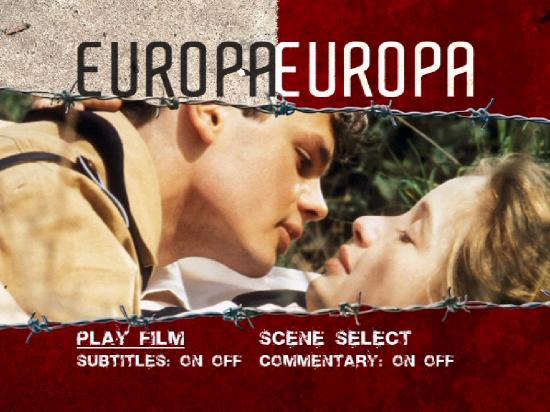
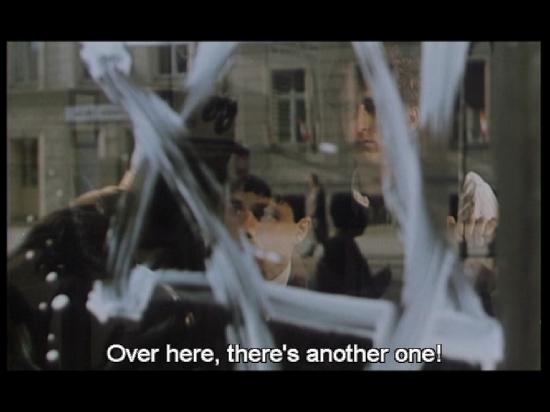
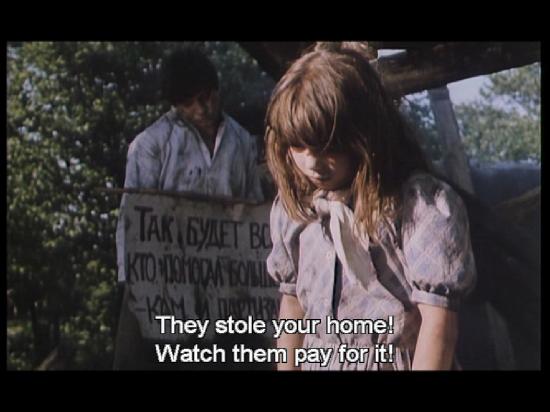
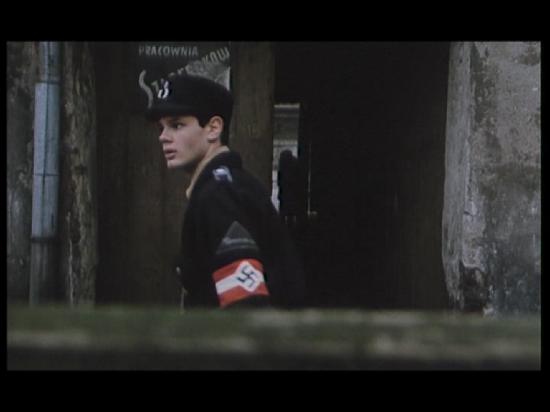
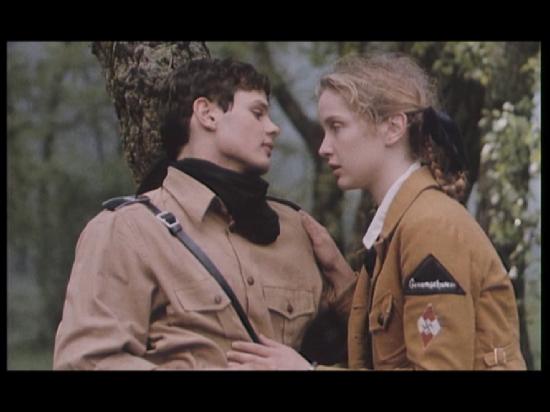
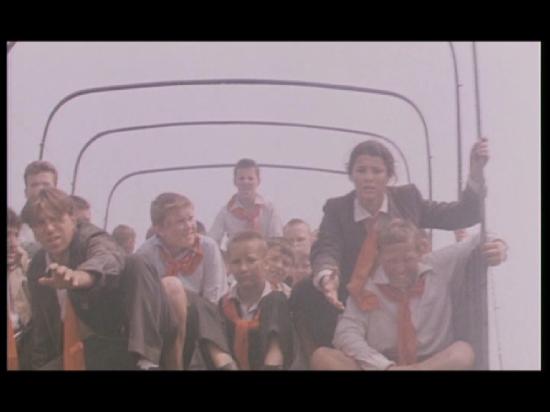
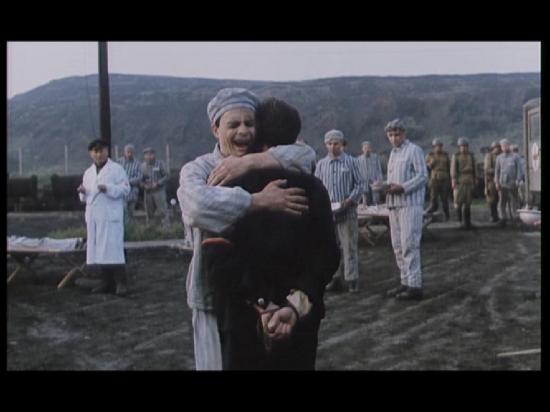
Your Opinions and Comments
Be the first to post a comment!